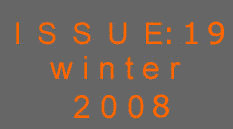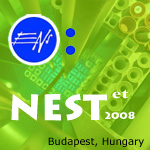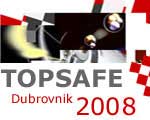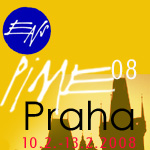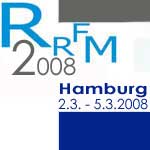
Word from the President

May I begin by saying how proud I am to have
been elected the new President of the European Nuclear Society.
It is a great honour to represent and argue for the interests
of ENS and its members, many of whom are friends and colleagues
I have had the pleasure of working with for many years. I pledge
to do my utmost to serve the membership to the best of my ability,
to promote its values and to help it achieve its goals.
In my first contribution ENS NEWS as President
to I would like to share with you my vision of the Society’s
future and highlight some of what I see as the main priorities
and challenges facing it at such a pivotal moment for the development
of nuclear science.
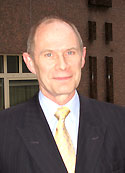
David Bonser
|
At a time when
there is increasing recognition around the world that nuclear
power must play an important part in future energy supplies
I believe that the European Nuclear Society should take
a central role in being an authoritative, expert voice.
With our broad membership we can draw on skills and knowledge
across the board; from the science base underpinned by
research reactors through fuel cycle management and the
operation of many types of power reactor to the decommissioning,
clean up and waste management of redundant facilities.
|
Society and politicians have
concerns about nuclear safety, waste management and economics
but they also have wider concerns about energy supply in general,
security of supply and the environment. We have the opportunity
to ensure that objective and consistent information about the
nuclear industry is available and heard. We should continue to
set up and support scientific expert groups that can produce
well researched position papers and be available to participate
in the debate.
ENS members have very different
nuclear histories, skills and experiences. We have countries
with large and small nuclear installed capacity, some with indigenous
full fuel cycle capability and those who import their fuel, those
who are building new capacity and those where policy is not favourable
to new build, countries at the forefront of research across many
aspects of the nuclear industry, those who are in the midst of
decommissioning facilities whilst others have yet to face this
task, we have a number of different experiences in moving towards
the implementation of long term waste management. We are, therefore,
in an excellent position to share and learn profound lessons
from one another. We must drive for the sharing of this experience
amongst our membership so that the European nuclear industry
can improve its performance. In turn, we can share best practice
with our colleagues around the world by building on our links
with American, Asian, Australasian and other nuclear societies.
One of my particular interests is supporting,
drawing in and giving a platform to the young generation. We
rely on them to provide a strong technical underpinning for our
industry now and to provide the leadership for the future. We
must continue to support their education and training within
the industry. They are also an extremely talented, knowledgeable
and committed source of imaginative communicators if we choose
to use them. The young generation want to learn about the industry
and to make a difference for their futures. They are very willing
to energetically take on the debate and, in many
circumstances, they are more credible than the ‘grey
suits’ of the older generation. I was particularly
honoured to receive the Jan Runermark Award from the ENS
Young Generation Network in June 2003 for the work I had
done in supporting and reinvigorating the UK’s Young
Generation Network.
Within the ENS, I strongly support the work
that has already been done to underpin sustainable funding routes.
I would continue to encourage the ENS working with other societies
where that makes economic and strategic sense.
|

